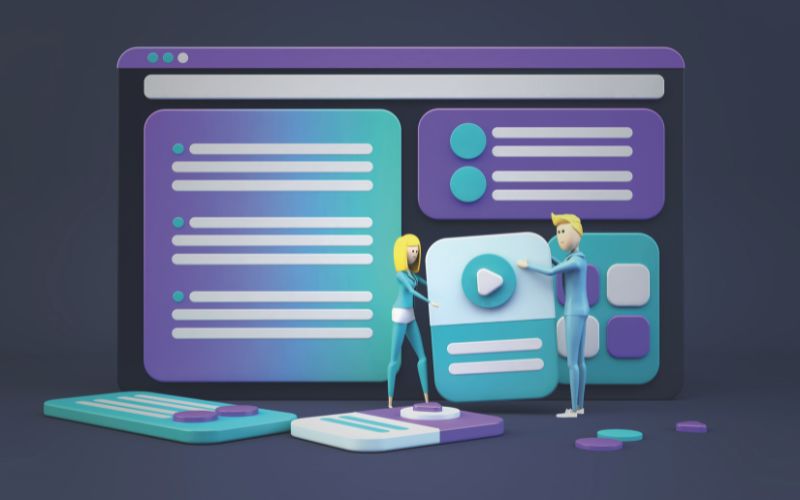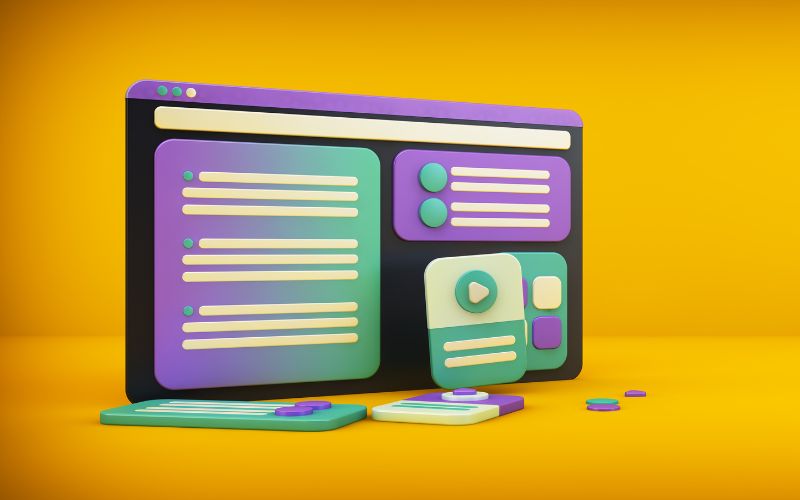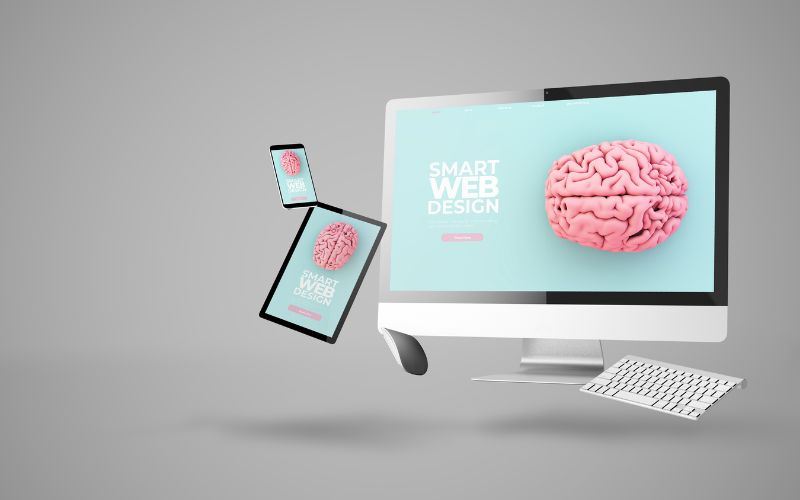Website design is a highly
sought-after and lucrative career. Since more companies do business online and
customers expect a lot when interacting with a website for business, the demand
for professional web designers is rising significantly.
Over the past ten years,
there has been a considerable evolution in web design expectations and skills
every web designer needs.
Being a web designer needs
both the analytical and creative and sides of the brain, like many other
careers in technology.

Beyond the abilities that
allow designers to work remotely, there are numerous other abilities required
to become a web designer in today's dynamic environment.
You'll discover a list of skills
every web designer needs, regardless of whether you're trying to hire a website
designer or simply want to start growing your career as a web designer.
8
technical skills every web designer must have
The primary responsibility
of a web designer is to choose a website's visual style by mixing different
aspects like layout, color, typography, graphics, and visual hierarchy.
Let’s review the technical
skills every designer needs to be successful.
Visual
Design
Researches show that
appearance and feel of a website for business account for 75% of people's
opinions of it.
Visual design is the art of
choosing the appropriate design concepts to improve a website's appearance and
experience.
Design principles are a
crucial component in producing visually appealing designs. Harmony, alignment,
balance, emphasis, repetition, contrast, movement, proportion, and negative
space are the most common ones.
To create a website design that
customers adore, it is essential to comprehend how these principles combine and
what effect they have on users.
Knowing the guidelines is
crucial since they can make the design process simpler and more efficient by
instructing designers on where to begin and how to mix elements.
Web
Server Management
Web server management is one
of the crucial but underappreciated skills every web designer needs.
Although technically beyond
the purview of website design, an understanding of how web servers work will
help you avoid downtime while finding quick and effective solutions to issues.
Regardless of how reliable a
company's servers are, problems and downtime will inevitably occur.
Although it's unlikely that
the web designer will need to work on the back end, having a rudimentary
understanding of how a web server works could speed up problem-solving.
HTML
& CSS
For every web designer, one
of the best talents to gain is a deep understanding of HTML and CSS.
The basic building elements
on which the design and framework of a website for business are based are HTML
and CSS. They provide you the freedom to read and change a page as frequently
as you choose.
Even though not all web designers
will directly work with HTML and CSS during website design, having a firm grasp
of how they operate is one of the most useful skills every web designer needs.
If you are familiar with CSS
and HTML, you will be able to design websites that function as intended and can
be correctly programmed because you will be aware of their limitations.
Content
Management System (CMS)
A content management system
is used to build the majority of contemporary websites. Despite the fact that
WordPress is the most well-known CMS, there are plenty of other options.

A web designer doesn’t have
to learn how to use them all, but it's a good idea to get familiar with the
fundamentals of how they operate and what they accomplish before mastering the
most widely used ones.
Search
engine optimization (SEO)
A crucial piece of advice
for website design is to keep in mind that without the support of SEO, no web
design can achieve smooth outcomes.
You will need to concentrate
as web designers on making your website for business SEO-friendly in terms of
speed, layout, structure, and performance.
Therefore, being familiar
with the fundamentals of SEO and search engine operations is one of the most
important skills every web designer needs.
Design
Software
When it comes to design
software, different website designers have varied tastes. Affinity Designer,
Figma, Sketch, Illustrator, Adobe Photoshop, or XD are some of the most
well-liked choices, while there are additional programs.
Although each application
operates differently, they all contain functionality for creating and organizing
pieces and layouts.
The choice relies on
personal preferences and perhaps the demands of the businesses.
▶️ Read More: Designing User Interfaces in 2023: 17 Trends to Watch
Responsive
Design
The main focus of responsive
web design is accessibility. The menus, content, and buttons should all be
visible and easy to use because many visitors won't stay on the website for
business for very long. If a website takes too long to load, a visitor is quite
likely to leave.
Consistent content delivery
is ensured via responsive design. It functions through the use of a master
layout that adapts to the screen it is loaded on.
By ensuring that your
designs work on a variety of devices, you may expand their audience without
compromising the user experience.
Additionally, you no longer
need to rely on a web developer to implement responsive designs thanks to
solutions like Webflow.
Color
Theory
Understanding color theory
is a crucial ability for web designers who want to pair fonts and visuals in
complementary or related tones.
According to this
hypothesis, different emotions are evoked by various colors, and these feelings
might have an effect on how a user engages with a website for business.
Color may have the biggest
influence on user experience and usability of any design element. Therefore,
knowing at least the fundamentals of color theory is one of the most important skills
every web designer needs for an effective website design.
This includes comprehending
color psychology, developing a color palette, and ideas like contrast.
Learning the fundamentals
can be accomplished reasonably quickly, but becoming a real color theory
specialist requires years of effort and study.
The next step is to
experiment and test different color combinations in your designs.
5
soft skills needed for a web designer
Technical proficiency is
important, but the optimal web designer also possesses a range of soft skills
to ensure the client company's project is successful.
Let’s review top soft skills
every web designer needs:
Project
management
Many web designers may find
themselves managing the projects they're designing while also pulling double
duty. This is typical for smaller website design teams or for projects that
don't require a specialized project manager.
A crucial skill for web
designers is effectively managing projects, deadlines, and delegation.
To be most effective, they
should become familiar with popular project management techniques and
applications.
Although it doesn't have to
be difficult, project management is crucial to completing a design project
efficiently and on schedule.
Time
management
Designers must be masters of
time management, much like project managers. Managing your own time is more
important than ever given how many designers are nowadays working remotely (and
most likely will do so for the coming years).

Finding your most productive
and creative times is one of the keys to effective time management.
Without having to put in
longer hours of work, working around these important periods can dramatically
increase output and productivity.
In order to make consistent
work on larger projects. Like building a website for business, rather than
waiting until the last minute or trying to accomplish too much in too little
time, the designer also needs to know how to break them down into smaller jobs.
Communication
Every professional,
regardless of industry, should work to improve their communication abilities,
but web designers need them the most.
Communication and teamwork
skills are now even more crucial skills every web designer needs, because so
many design teams are working remotely.
Designers must be more
intentional about how they collaborate and communicate when they are not in the
same office.
To effectively discuss,
collaborate, and be on the same page with the clients or stakeholders, they
must be able to clearly communicate their thoughts regarding website design.
A web designer's ability to
effectively communicate will go a long way in advancing their profession and
building a great website for business.
That's because communication
will allow them to clearly and transparently transmit all kinds of technical
information.
Creative
thinking
Any designer needs to have
the ability to think creatively. Designers are more valued and employable when
they are able to address design challenges from creative viewpoints.

Numerous methods exist for
honing your creative thinking abilities. The greatest method, though, is just
plain old practice.
Consider your creative
muscles. These muscles will atrophy and lose strength if you don't use it. But
if you use it frequently, you can improve your capacity for original thought.
So, one of the main skills
every web designer needs to deal with issues or circumstances is creative
thinking.
Digital
marketing
A web designer's proficiency
in digital marketing is a major asset. they play a key role in a digital
marketing plan, and if they can use their knowledge and talents to adapt to the
market, they will be highly valuable to a prospective employer.
▶️ Read More: Web development services outsourcing: all you need to know
Conclusion
The construction,
development, and maintenance of user-friendly website for business has in fact
become a difficult undertaking in an era characterized by the quick development
of digital technology.
Designing professional and
competent websites using the conventional, segmented methods of website design
is simply not feasible today.
Instead, a new need for
full-stack designers who can create dynamic, inventive, and complex websites is
slowly but surely gaining ground.
Each aspiring web designer
in the present day must have a certain set of useful and unique web design
talents.
Seek out a designer that is
aware of the wider picture, including your digital strategy and the artistic
elements that link everything together.
we hope
that this post will help you have a better understanding of the skills every
web designer needs. If you’re looking for a skilled web designer, make sure to
contact our development agency now!